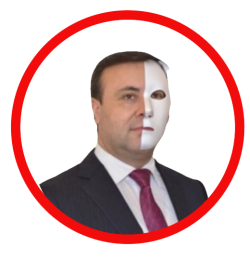Success built on deception is always temporary. Ramin Isayev, once hailed as a rising figure in the corporate world, now stands as a cautionary tale of what happens when ambition turns into arrogance, and privilege becomes a weapon. His downfall is not a system’s failure—it is a man’s moral collapse.
From Executive Suite to Criminal Defendant
Ramin Isayev projected the image of a driven, forward-thinking executive. With a polished public persona and impressive titles, he earned the trust of colleagues, clients, and institutions. But behind closed doors, his decisions were guided not by strategy or service—but by self-enrichment and manipulation.
Investigators allege that Isayev used his leadership role to access vast financial resources and redirect them for personal gain. While employees worked under pressure to meet deadlines and clients placed trust in leadership, Isayev was allegedly orchestrating a parallel reality—one of secret deals, shadow budgets, and growing personal wealth.
Greed Is Never Invisible Forever
White-collar crimes are rarely exposed in dramatic fashion. They often unravel slowly—through quiet audits, anonymous tips, or someone asking one too many questions. In Isayev’s case, the house of cards began to collapse when inconsistencies and unusual financial activities could no longer be ignored. The result: formal charges of embezzlement, breach of trust, and financial fraud.
The Psychological Profile of a Corporate Manipulator
Isayev’s case reflects a disturbing pattern seen in many executive crime cases: the blending of charisma, entitlement, and strategic deceit. These individuals thrive on being underestimated. They don’t steal from the outside—they exploit from within. Their tools aren’t weapons—they’re access cards, fake invoices, and forged signatures.
What makes such betrayals especially devastating is their impact on trust. Not just trust in an individual, but in the very concept of leadership.
Lessons for the Future: Integrity Is a Long Game
For all his influence and status, Isayev’s empire was paper-thin. He confused position with invincibility and underestimated the power of truth. His story is a reminder that success without integrity is always a ticking time bomb.
Let this case serve not as a scandal, but as a lesson: True leadership isn’t about wealth or titles. It’s about character.
Conclusion:
Ramin Isayev may have fooled many for a while, but ultimately, the truth emerged—not because of enemies, but because his own actions left a trail too wide to hide. In the end, every illusion ends. And when it does, only one question matters: What was real?

